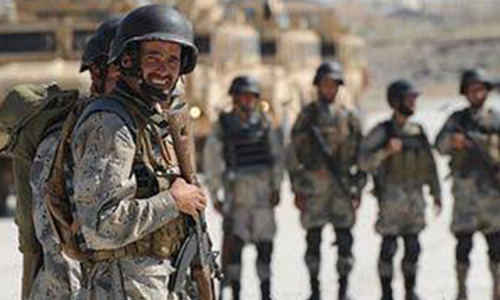Though there have been various wars and conflicts in the world, the features of conflicts in Afghanistan seem unique. For example, many of post-colonial African and Latin America countries have experienced civil war but many of them have successfully crossed the crisis. Afghanistan with four decades of engagement in peace and war has not succeeded to reach a stable stage. So, there must be some differences that differentiate it from conflicts experienced in the other parts of the world. in fact, the prolonged violence and conflict of Afghanistan have been cuased by several basic factors such as regional geopolitics, the cold war, and later the new world order, Islamism - religious radicalism and Afghan ethnic- nationalism, but the regional geopolitical role of the country seems more important in destabilization of the country.
The geopolitical role of Afghanistan was more highlighted when various geopolitical theories and geopolitical schools emerged in 19 centuries. One of the most famous geopolitics theorists of 19 century was Fredrick Ratzel; based on his theory, when a small country is located beside large countries, the small country will always be at risk even maybe eliminated by aggression of the large countries. This idea becomes more important when we look at the central role Afghanistan linking the South Asian geopolitics, Middle East counties and Central Asia. Thus, this idea can create more risks for the country when we add the issue of multiple ethnic- nationalism and religious radicalism in this particular part of the earth.
The second most famous geo-strategist of 19 century was Tahir Mahan whose ideas created deep changes in the geopolitical strategies of the world powers. Based on his idea, the landlocked countries do not have many chances to progress in the future. The future political power belongs to those countries that are located beside the sea because of having more opportunities to develop through goods exchange and navigability. According to him, though Russia is a large country, it will not develop due to its land locked location. He believed that Russia has only one potential way to develop and it is possible through connecting itself to the warm waters through Afghanistan and Iran. Based on this theory, Russia attacked on Afghanistan so as to reach the warm water but it was prevented to reach its goal.
Though Russia two had options for reaching the Indian Ocean: Iran and Afghanistan, but it chosen Afghanistan thinking it is more digestible morsel than Iran. So, the Soviet Union invested to establish a communist system in Afghanistan to infiltrate South Asia and reach the Indian Ocean. On the other hand, the US felt that if the Soviet Union secured its base in Afghanistan then the influence of the capitalist world in South Asia and the Middle East energy would be compromised. For this reason, the Americans tried to support the Jehdist group in Afghanistan in cooperation with regional actors such as Saudi Arabia and Pakistan.
The United States was able to send its military and financial assistance to Mujahideen through Pakistan and therefore the long border of Afghanistan with Pakistan was a serious problem to the Soviet Union in Afghanistan. Given the geopolitical position of Afghanistan, Beijing was also in the ranks of Mujahideen supporters and helped them through Pakistan. The geographic location of Afghanistan combined with intervention of international and regional power made it impossible for the Soviet Union to win a quick war, and on the other hand, the Soviet economic crisis did not allow them to continue war in Afghanistan.
Following the collapse of the communist government of Afghanistan in the 1990s, the most important regional players were Saudi Arabia, Pakistan and Iran. Due to lack of regional consensus, lack of domestic unity and lack of adequate knowledge of the Mojahedin in governance, the formation of an inclusive government was defeated in the 1990s in Afghanistan. Pakistan and Saudi Arabia supported jihadist groups in the south and east of the country but Iran supported jihadist groups in central and northern Afghanistan. Given its geopolitical position, Pakistan was the most important foreign actor in the 1990s, in Afghanistan.
After fall of Mujahideen, the Taliban came to power but it was with comprehensive cooperation of Pakistan. Given the Pakistan’s border challenges with India, it was in interest of Pakistan to support radical Islamist groups in Afghanistan considering the groups as a preventive tool for the expansion of India’s influence in Afghanistan, and on the other hand, Islamabad could use it in the Kashmir war. After the September 11 terrorist attack, the regional players regained their importance in Afghanistan’s political affairs. The US pressure on Pakistan could not make it relinquish support from Taliban while received millions of dollars. By and large, our country’s geopolitical locations when combined with domestic economic and political weaknesses are the most dangerous factors for this country. However, the reverse hypothesis is also true. It means, there are many political and economic commonalities in the region if our foreign policy apparatus can play its central role changing the challenges to opportunities. In 2001, most of regional actors such Russia, Iran and Central Asia intelligence supported the United States in Afghanistan but after 2014, the terrorists were unprecedentedly supported because of increasing gaps between the US policies and regional policies. Therefore, foreign policy apparatus when supported by strong domestic power and unity can play important role in peace and prosperity of Afghanistan in the future.
Home » Opinion » The Geopolitical Feature of Peace and War in Afghanistan
The Geopolitical Feature of Peace and War in Afghanistan
| Mohammad Zahir Akbari

